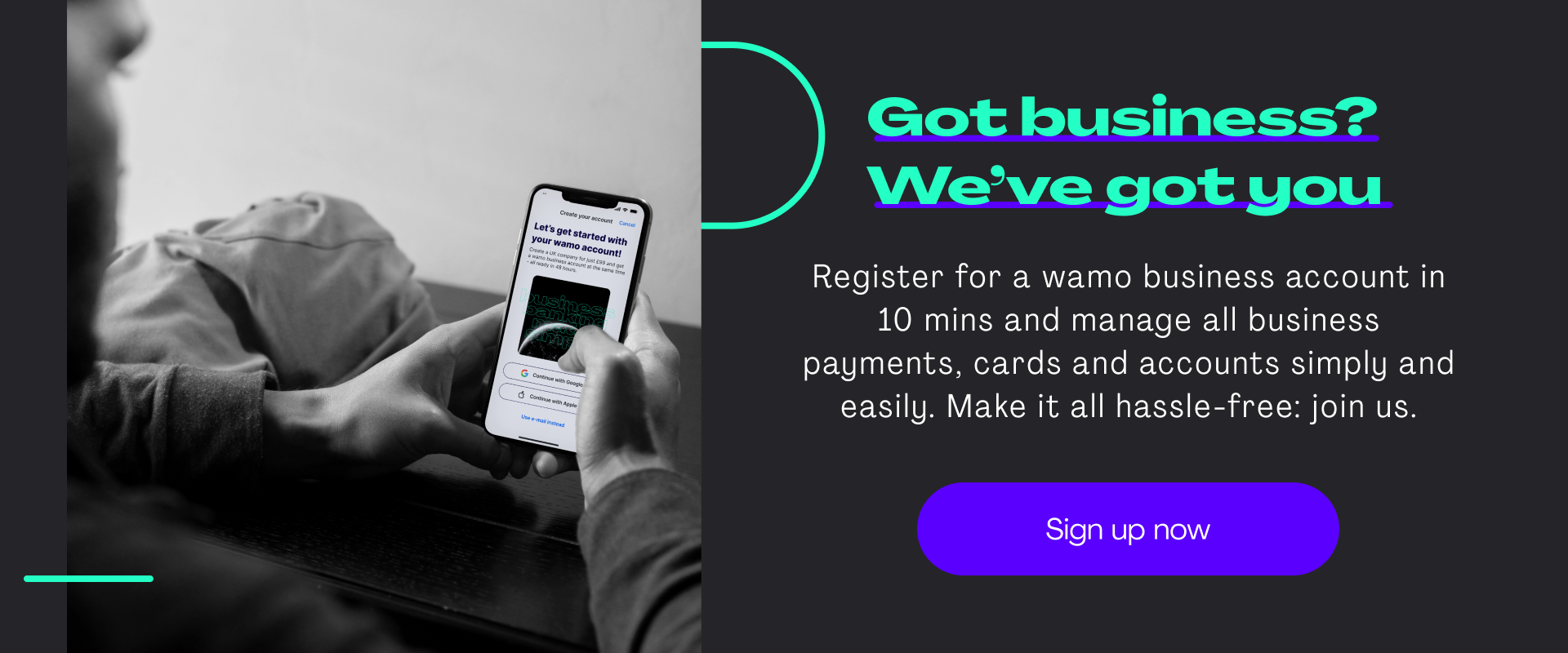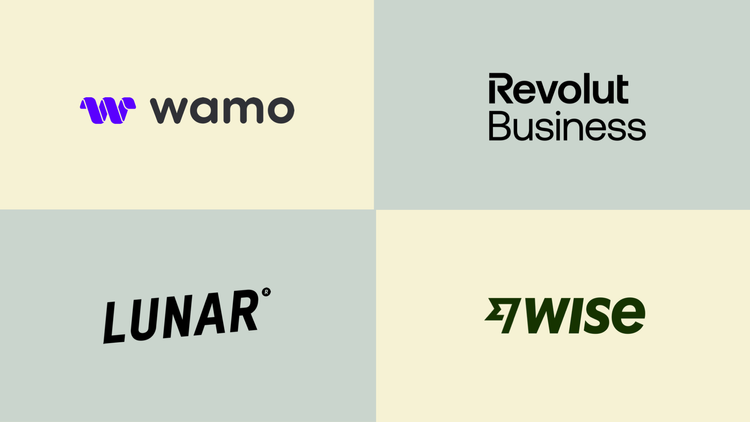Thanks to France’s strong economy, rich culture, and high standard of living, many people are attracted to the country and are choosing to move and do business there. This has seen France easing its banking regulations for everybody and welcoming global entrepreneurs to take advantage of its growing economy and multiple opportunities.
French banks are part of the Single Euro Payments Area (SEPA), which allows for easy and efficient cross-border payments within the Eurozone as well as between some non-EU countries. This is useful for everybody living in France doing business in other countries, and gives them access to fast, safe and efficient transactions.
Having a bank account in France can also make it easier to navigate the country's financial system and access various services such as direct deposit, automatic payments, and online banking. In general there may be some extra hoops to jump through to open a bank account as a foreigner in France, but it is a worthwhile investment if you want to establish yourself in the country and run your business there..
Can you open a business account in France if you are not French?
The good news is that you can definitely open a business account in France if you’re from another country but want to live and do business there, or even work from abroad. Which types of bank accounts do you need, and what options are available? Let’s take a closer look below.
As per 2019 French law, it is not mandatory for individual entrepreneurs to open a business account in France. However, if you are self-employed and your turnover has exceeded € 10,000 for two consecutive calendar years, then you are required to create an account dedicated to your company's financial activities.
As to be expected, high-street French banks have strict requirements for foreign businesses. Many international entrepreneurs find it difficult to open a business account in France because of all the legal requirements that need to be met and many documents that have to be filled out. Another solution to high street banks is to open an account with a neobank (also known as an online bank, internet-only bank, virtual bank or digital bank) like Revolut or Wise.
Another consideration to take into account is when a bank refuses to open a new account for you. In that situation, the ‘Tacit Refusal’ may apply, and you’ll be able to complain to the ‘Banque de France’, which will designate a bank that will open an account for you.

Why you need an international business account
If you’re running an international business in France while managing it from your home country, you will probably be dealing with multiple currencies every day. From selling your product or service in Euros to customers in France, to receiving payments from suppliers outside of France in other countries, to having to pay employees in Euros who live and work in France.
For example, imagine you are selling your products in France from the USA. Your customers will be making the purchases in Euros, however, your domestic bank account is in US dollars. In order to receive the payments from your customers, you will need to convert the Euros into US dollars first, and then send it over to your home country. This process can be costly and time-consuming, as you will have to pay currency conversion fees twice – once when converting Euros into US dollars and again when converting back into Euros later on (or whatever your local currency may be).
An international business account allows you to manage your money in multiple currencies, which is essential for businesses that operate globally. It provides easy access to your funds, lets you hold different currencies and helps to streamline your financial operations, which can help you to save time and money. Conversion and international transfer fees associated with these more traditional accounts are often high and could add up in the long run.
A solution to save more time and money when working between currencies and across borders would be to have an international business account that allows you to hold multiple currencies until you are ready to use them. The wamo business account does this – you can simply receive payments in Euros and hold them until you’re ready to use them, saving on time and money on transfer and conversion fees.

Advantages of having a business account in France
As mentioned, it is useful to have a business account in France to help your business run efficiently. Lets outline the benefits below:
Difference in personal and business finances: Having a separate business account allows for better financial management and record keeping, making it easier to track expenses and income.
Establishing credibility: Having a business account can help establish credibility with customers and suppliers, as it shows that your business is professional and organised.
Legal requirements: In some cases, it may be legally required for a business to have a separate bank account.
Access to additional services: Many banks offer additional services such as credit lines, loans, and merchant services, which can benefit businesses looking to expand.
Tax compliance: It helps you to stay compliant with French tax laws and regulations.
To ensure the stability of your finances: In case of any financial crisis, your personal finances will not be impacted.
Related: 10 ways sub-accounts can help you manage business finances
What are your options to open a business account?
As with opening a business account elsewhere in the world, there are several options available to you when opening a business account in France. Below are 4 possibilities to look into:
1) Traditional brick-and-mortar banks (popularly known as high street banks):
Most major banks in France, such as BNP Paribas, Société Générale, HSBC and Crédit Agricole, offer business banking services. You will need to visit a branch in person to open an account.
As with any choice we make there are always pros and cons to consider.The benefits of opening a business account with traditional brick-and-mortar banks in France include:
- Established reputation and trustworthiness - you know what you’re getting
- Access to a wide range of products and services, such as loans and lines of credit
- Personalised service and support from dedicated account managers
- Physical branches for in-person banking and support
- Ability to easily deposit and withdraw cash
Some possible downsides to opening a business account with a more traditional bank in France might include:
- Strict requirements and documentation
- Lengthy account opening process and in-person appointments (which is difficult if you aren’t a resident in France)
- You may need to pay a deposit to open an account
- Fees and charges are typically higher than online banks
- Less flexibility and convenience compared to online banks
These pros and cons might be useful to think through when weighing up your options between opening your business account with a more traditional brick and mortar bank or some of the alternative possibilities listed below.
2) Online banks:
You can also consider opening a business account with an online bank for your business in France. Online banks are typically more flexible and offer lower fees than traditional brick-and-mortar banks. Popular online banks in France include N26, Revolut, and Qonto. These banks offer a simplified account opening process and can often be done entirely online. They also tend to have lower fees and can offer more flexibility in terms of account management.
Some of the benefits of opening a business account with online banks in France include:
- Simplified account opening process, often done entirely online
- Lower fees and charges compared to traditional brick-and-mortar banks
- Flexible account management options, such as mobile banking
- Convenience and ease of use
Possible challenges of opening a business account with online banks in France include:
- Less personalization and support from dedicated account managers
- Limited access to in-person banking and support
- Potentially less established reputation and trustworthiness compared to traditional brick-and-mortar banks
- May require additional steps to verify identity and comply with regulations
3) Alternative lending platform:
France has a number of alternative lending platforms such as Younited Credit, which allow businesses to borrow money online without having to go through a traditional bank. They have a shorter application process and can quickly get you the funding, but their interest rates may be higher than traditional bank loans.
The benefits of using an alternative lending platform to open your business account in France might include:
- Shorter application process and quick access to funding
- Potentially easier to qualify for a loan, even with a less-than-perfect credit history
- Potentially lower collateral requirements compared to traditional bank loans
Consider the following challenges that might occur when using an alternative lending platform to open your business account:
- Higher interest rates compared to traditional bank loans
- Potentially less regulation and oversight, which can increase the risk of fraud or mismanagement
- Limited access to other banking services such as savings accounts or lines of credit
It's important to carefully consider the terms and conditions of any loan or financing offered by alternative lending platforms and compare them to traditional bank loans before making a decision. Alternative lending platforms will often have a faster turnaround time, but this could be a downfall in the long run and it is always best to investigate all the terms and conditions before making your decision.
4) Fintech's newage financial institutions:
A trending and convenient option for every business owner in France are payment processors and digital financial management platforms like wamo. These platforms allow businesses to easily accept payments and manage their finances online.
Some benefits of opening a business account with these types of financial institutions in France include:
- Easy integration with online and mobile sales platforms
- Lower fees for online transactions compared to traditional brick-and-mortar banks
- Ability to accept a wide range of payment methods, such as credit and debit cards, e-checks, and digital currencies
A few things that might be challenging when going this route could include:
- Limited access to all financial services such as loans or lines of credit
- May have limitations on transaction amounts or frequency
The four options we’ve outlined all have different potential benefits and challenges when opening a business account as a foreigner in France. It ultimately depends on the needs of your company and which option will help elevate your business. Now that you have some pointers you can do a bit more research to find the right solution for you.
How long does it take to set up an account in France?
Depending on which route you take to open your account and the type of account you ultimately choose, the amount of time to set it up might vary drastically. It could take days or weeks to open a personal account at a traditional brick-and-mortar bank – you will most likely need to visit the branch where you’re opening the account and also take with you all the necessary documentation.
It is typically much faster to open an account with an online institutions as everything is done digitally. This process might take as little as a few days to complete the account opening process.
With financial management and payment platforms like wamo, you can get your business account up and running in 24 hours!
Remember to consider that if you’re opening a business account in France it might take slightly longer. There are often additional steps if you are not French, to verify your identity and comply with all regulations. Ask the bank or institution you’re going with what the expected time frame is for opening your account.
Process of opening a bank account:
If you have been living in France for more than last 183 days, paying taxes and/or have a valid visa, opening an account as a resident of France is relatively straightforward. Below are the types of accounts you’ll be able to open fairly easily:
1) Livret or General savings/deposit account: This is the most basic type of bank account in France and is used for everyday transactions such as paying bills and receiving a salary. To open a Livret or general savings/deposit account, you will need to provide your passport or national ID card, proof of address, and proof of income or employment. Some banks may also require a minimum deposit.
2) Compte à terme or fixed-term deposit account: This type of account allows you to deposit money for a fixed term, usually ranging from 3 months to 3 years, with a higher interest rate than a Livret account. You will need to provide the same documents as for a Livret account, as well as proof of the deposit amount.
3) Compte courant or checking account: Similar to a Livret account, this checking account also allows for overdrafts and check-writing. You will need to provide the same documents as for a Livret account, and may also be required to provide proof of income or employment.
To open a bank account in France you’ll need the following:
- Proof of ID (passport or national ID card)
- Proof of address (utility bill or rental lease)
- Proof of income or financial means (salary statement or proof of employment)
- A valid visa or proof of long-term residence in France (183 days or more)
- Tax identification number (Numéro Fiscal)
- Some banks may also require a French bank account number
- Some traditional bank accounts may also require a minimum deposit or a deposit guarantee
Best banks in France
There are many banks to choose from and each has its own merits. The best bank option for your personal or business needs will depend on your preferences and circumstances. Some of the more popular banks in France include:
BNP Paribas offers a range of services and products for everybody, including business accounts, mortgages, and wealth management.
Crédit Agricole is one of the biggest banks in France and only requires you to provide proof of address and ID when opening an account.
HSBC is an international bank and provides much faster processes than other traditional banks. Additionally, you face no language barriers as the entire process can be done in English.
It’s never a guarantee that the process of opening an account with any of these banks will run completely smoothly. So make sure to do some in-depth research on your eligibility at these banks.

Open your business account easily in France with wamo
As a financial management and payments platform, wamo helps global entrepreneurs to open a business account in France. Other services to help entrepreneurs and small business holders include company formation, debit cards, multi-currency accounts and international payment processing.
It’s fast and simple to open a wamo account - you’ll need to provide a few documents including proof of ID, address and business activity. Once everything is submitted, wamo will take care of the rest and handle all communications with the bank on your behalf.
With wamo, the process is simply built to ease the business account opening process, even if you are running a business from your home country. The best part about wamo's process is that it just takes a few minutes to register. However, wamo will help you through the whole process so that you can get your company up and running as soon as possible.
To open a business account with wamo, download wamo Business from Google Play or the App Store. You can also open an account from the website. wamo can be used from your smartphone via the app or from your desktop via the web app, whatever works best for you.








